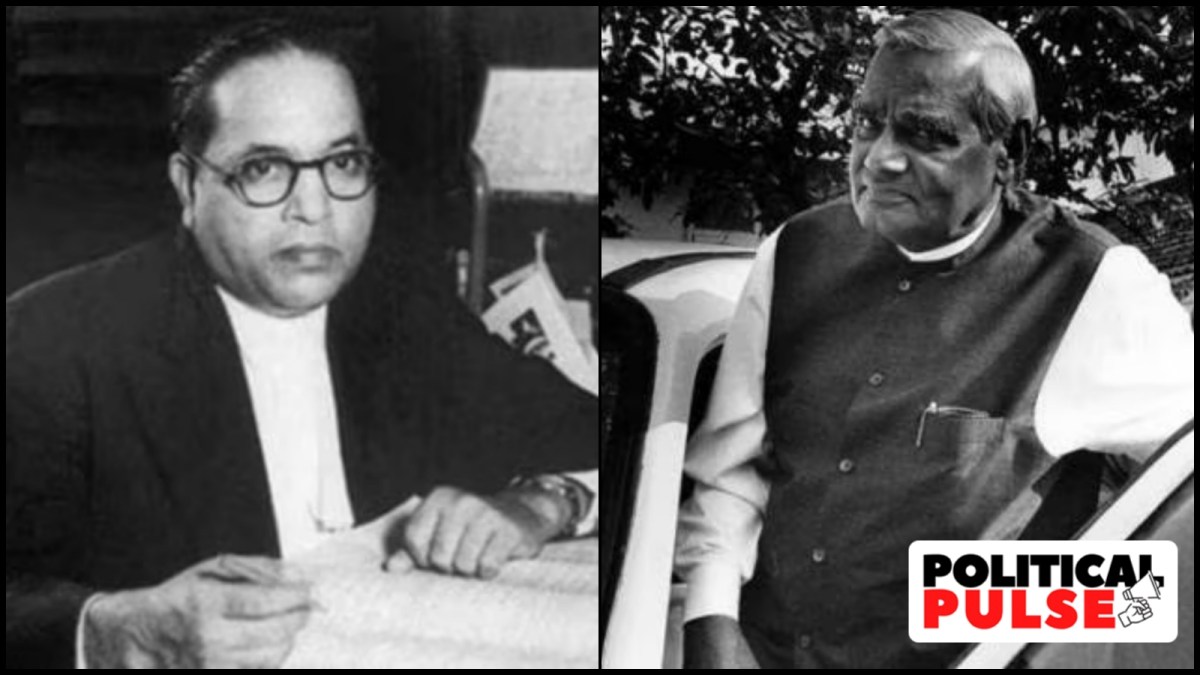Parliament Sessions also in the South? Among those in favour were Ambedkar, Vajpayee
Unity, climate, integration of South, vulnerability of Delhi to possible attacks from abroad were some of the reasons put forth

Should Parliament have sessions in South India? A new debate has set off, with YSR Congress Party (YSRCP) MP Maddila Gurumoorthy writing a letter to Prime Minister Narendra Modi on November 28 and requesting him to hold two Parliament Sessions in South India annually.
In the letter, Gurumoorthy argued the move will help national integration and would “address the practical challenges faced by Parliament while dealing with the extreme weather conditions” of Delhi, and facilitate “effective” working of Parliament. A “more favourable climate” will ensure “smoother legislative process” , said the Tirupati MP.
The idea of holding Sessions in the South has been discussed in the past by Parliament, with among those in its favour being B R Ambedkar.
In November 1959, Independent Gurgaon MP Prakash Vir Shastri introduced a Private Member’s Resolution that proposed holding a Session of the Lok Sabha in South India, either in Hyderabad or Bangalore (as it was known then), annually.
Atal Bihari Vajpayee, who was then a first-time Bharatiya Jan Sangh (the precursor to the BJP) MP from Balrampur in Madhya Pradesh backed the proposal, saying it had “been made to strengthen the unity of the country” and shouldn’t be looked at through a “political prism”.
Vajpayee added that there was no question about shifting the national capital. “Keel yehin gaadi gayee thi… Woh keel abhi tak gadi hai, aur usko ukhaadne ka koi prayatna ho bhi nahin raha hai aur karna bhi nahin chahiye (The foundation of the national capital was laid here in Delhi. It is very much based here, and no attempt is being made to uproot it, nor should there be any.)
In his book Thoughts on Linguistic States, Ambedkar had proposed two capitals and given three reasons for it. “Delhi is most inconvenient to the people of the South. They suffer the most from cold as well as distance. Even the Northern people suffer in the summer months,” he had written. He had also argued that people in the South feel their Capital is far away and that they feel they are being “ruled” by the North.
The third reason he had given was defence. “Delhi is a vulnerable place. It is within bombing distance of the neighbouring countries.”
As per Ambedkar, the second capital of the country could be Hyderabad, especially in the summer months. “Hyderabad fulfils all the requirements of a capital for India,” he said, and was “equidistant to all states”. “The only thing that is wanting (in Hyderabad) is a Parliament House, which the Government of India can easily build. It is a place in which Parliament can sit all year round and work, which it cannot do in Delhi.”
During the Parliament discussion, Congress Anantapur MP Nagi Reddy also backed holding Sessions of the Lok Sabha and Rajya Sabha in the South, saying this “would help in creating greater unity between the two parts of the country”. This, he argued, was needed because there was “a feeling in the South that the affairs of the country are being managed much more by the people of the North, sometimes to the detriment of the South”.
This was opposed by Ansar Harvani, a Congress MP from Fatehpur in Uttar Pradesh, who said it was “a great misfortune of our country that after 12 years of freedom we still talk in terms of North and South”.
He said the Government of India had preferred Bangalore for “certain state undertakings” in terms of industrial establishments and factories. “The session of the Lok Sabha is a business affair. It is not a ceremonial affair like the annual session of various political parties,” he said.
C K Bhattacharya, a Congress MP from Raiganj, argued that the Constitution had not declared “the place where the Lok Sabha Session is to be held”. But he went on to flag logistical issues, such as the shifting of ministers, their departments for which infrastructure had already been put in place in Delhi.
Vidya Charan Shukla, who was representing the Balodabazar seat in Madhya Pradesh at the time, said holding Parliament Sessions in the South will lead to greater understanding between different parts of the country. “We will come into much greater contact with each other and we will be able to understand each other much better,” he argued.